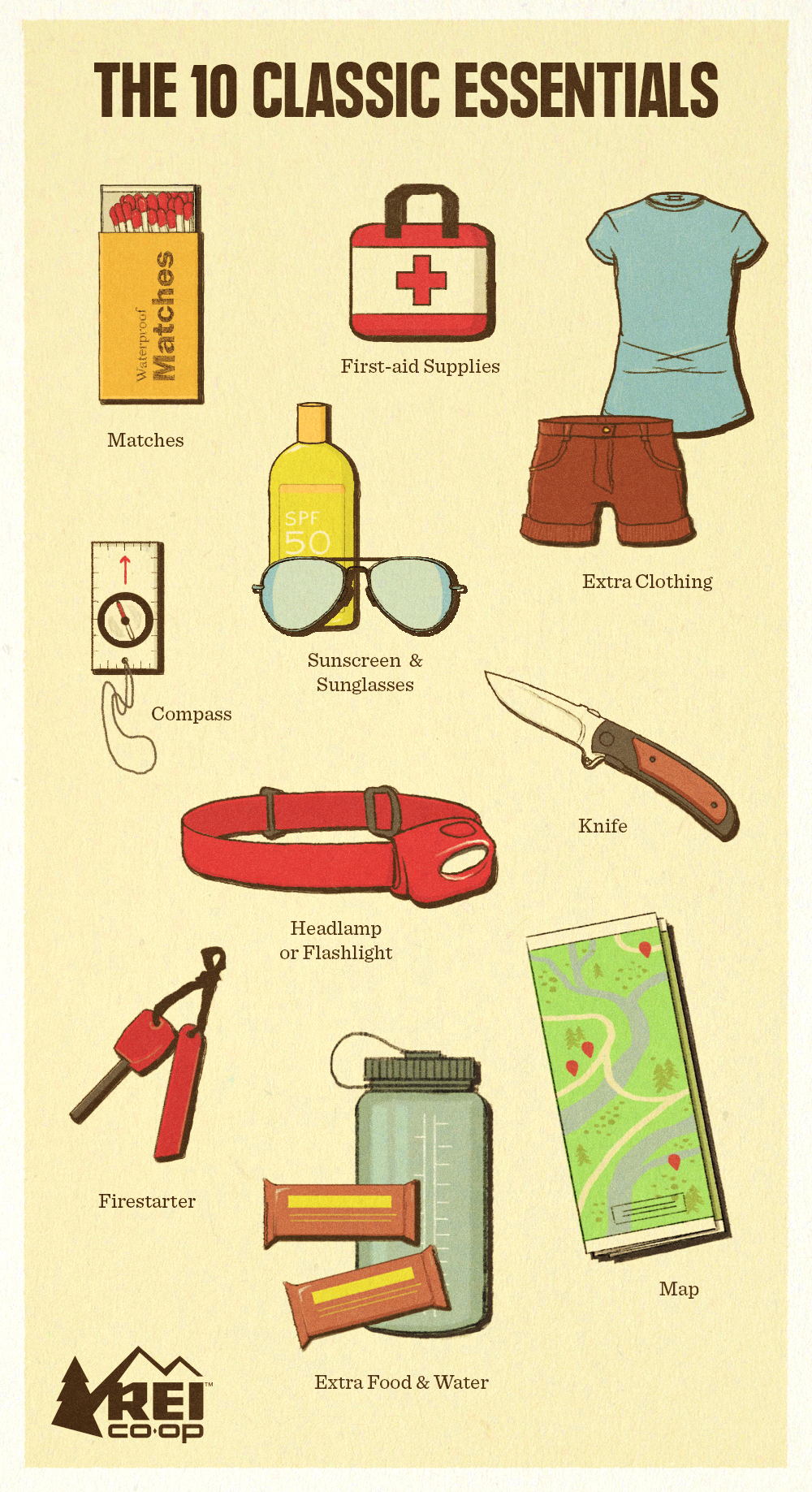Ten Backpacking Essentials
The past couple of weeks we have been working with the scouts on their backpacking skills. Requirement 2a of the Backpacking Merit badge reads; List 10 items that are essential to be carried on any backpacking trek and explain why each item is necessary. With my research on this requirement, I have found that some of the items have recently change. I'll share just the updated version in this post.
Backpacking Ten Essentials
- Navigation (map and compass) A topographical map and compass must be included within your pack. National Geographic has made virtually all topographical maps free on their website to print or download. GPS units are good, but what happens when the batteries go out? The trusty old compass to the rescue again.
- Sun Protection (sunglasses and sunscreen) Nothing worse than a sunburn in the middle of the deep woods. Wear sunglasses along with a hat and sunscreen to protect yourself from being burnt.
- Insulation (extra clothing) Be prepared for any type of weather in the back-country. Know the weather forecast before your trip also. Depending on the elevation, and time of year, rain could eventually turn into snow.
- Illumination (headlamp / flashlight) My choice with this item is the headlamp. Headlamps allow you to have the freedom to use your hands while still being able to see at night rather than holding a flashlight.
- First-aid Supplies Be prepared for injuries because they will happen. If not to you, than to another person in your party or even an individual you may come across hiking the same trail. Kits should include items to treat blisters, adhesive bandages, several gauze pads, adhesive tape, disinfectant ointment, and any other needed medication. You would be amazed how well using some duct tape on a blister works.
- Fire (waterproof matches/lighter/candles) Waterproof matches are light and easy to use. Using flint and steal is another good option. Some of the best fire starting options include cotton balls with petroleum jelly all over them. Also, your glasses or a magnifying glass works well on a bright sunny day.
- Repair kit and tools A basic knife will do a great job preparing your food or fire. A multi-tool may be good to take along also. They only down side of the multi-tool would be weight.
- Nutrition (extra food) Always pack at least an extra days worth of food. I have come to find that Scouts are ALWAYS hungry. So pack some extra food just to be safe. Also, remember that you will also be burning off more calories than you are use to due to the fact that you are hiking to each destination and burning more fuel than you usually do on a normal day.
- Hydration (extra water) Make sure to always have a good quality water bottle along with a collapsible water container for your filtration system. Make sure to plan out your backpacking trip in advance to know where and when to get water. No matter how thirsty you are, always filter your water before drinking it.
- Emergency Shelter This one is kind of new. Mostly for those who are looking at only doing a day trip but end up needing to stay the night due to some sort of an emergency. I usually pack my hammock along with a tarp and some para-cord within my day pack just in case the weather turns and i need a quick shelter. Or, even for when I find the perfect relaxing spot to hang the hammock and enjoy the back-country a little more with a nice nap.
Some other great items to take along on your backpacking trip would also include the following:
- Insect Repellent
- Whistle
- Ice Axe (winter)
- Personal locator beacon
- Communication device (two way radios)
